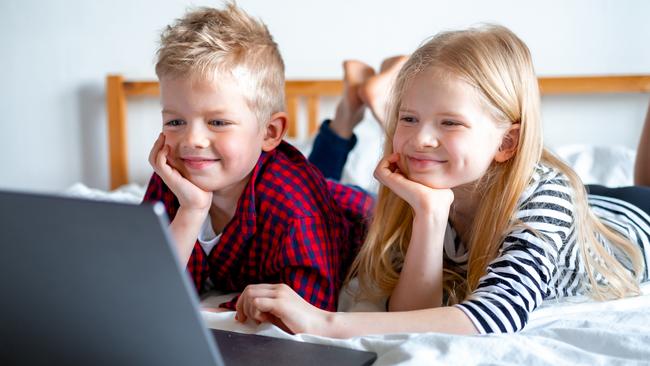Coronavirus: Online learning to take toll on students’ skill levels
Extended school closures could lead to significant declines in children’s key literacy and numeracy skills.

Extended school closures could lead to significant declines in literacy and numeracy skills, with experts warning online learning is no replacement for the classroom.
As schools across the country prepare to transition to teaching remotely from term two in a bid to combat the spread of the coronavirus, there are fears students risk succumbing to the “summer slide” — a term used mainly in US education circles to explain a supposed decline in skills over the longer holiday break.
Evidence for Learning director Matt Deeble said the switch to online learning would, for most students, equate to less learning.
“We know the vast majority of children learn better at school because of the direction, expertise and support that can be provided there,” he said.
“We also know the risk is far greater for children and young people in vulnerable circumstances. A ‘summer slide’ in reading, maths and other skills over a long school break is well understood and a useful proxy for what might happen.”
The warning comes as federal and state governments move progressively towards a lockdown of non-essential services and students look set to miss as much as three months of classroom time; or as much as six months if predictions of a term three shutdown eventuate.
Students in Victoria and the ACT have already had school holidays brought forward, and more than 90 per cent of NSW public school students are now studying remotely as parents heed requests from the state to keep children at home. Independent and Catholic schools have also made the switch.
And while education departments have moved to reassure families that remote learning would be “business as usual” in terms of their children’s education, evidence comparing physical with virtual classroom environments suggests otherwise.
Grattan Institute fellow Julie Sonnemann pointed to a US study involving nearly 1.7 million students from kindergarten to Year 12 of Ohio-based online-only charter schools that found they performed significantly worse than students with similar backgrounds and prior achievement than those attending traditional public schools. The gap applied to high and low-achieving students.
Ms Sonnemann said there was also ample research to suggest students fared better when technology was used to supplement teaching, rather than replace it.
“The challenge with technology replacing face-to-face teaching is that children are required to learn at their own pace and they need self-awareness and self-regulation to do that,” she said. “Lots of kids will struggle with that, particularly those who are vulnerable because they may come from disadvantaged backgrounds.”
The “digital divide” between advantaged and disadvantaged families is another emerging concern for educators, who have stressed school closures would further highlight inequity and disproportionately affect poorer students.
Mr Deeble said many families lacked the resources and access to technology to support children’s learning at home.
“For those experiencing vulnerability, we must ensure the digital divide and lack of other resources does not turn the current achievement gap into a chasm over the coming months,” he said.



To join the conversation, please log in. Don't have an account? Register
Join the conversation, you are commenting as Logout